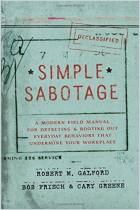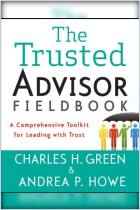Melden Sie sich bei getAbstract an, um die Zusammenfassung zu erhalten.

Melden Sie sich bei getAbstract an, um die Zusammenfassung zu erhalten.
David H. Maister, Charles H. Green and Robert M. Galford
The Trusted Advisor
Free Press, 2000
Was ist drin?
As a professional advisor, you can offer expert guidance, but it only has an impact if your clients really trust you.
Recommendation
Being trusted by their clients separates successful advisors and consultants from the corporate consigliores. But how does a qualified advisor become trusted? Authors David H. Maister, Charles H. Green and Robert M. Galford provide methods you can use to reach the inner circle. They break trust into its component parts and reassemble those pieces into a viable, practical model, complete with suggested conversations. That may sound a little robotic, but with practice, an advisor can make the transition from outside technician to habitué of the inner sanctum. This readable book includes a useful appendix and a list of quick references. getAbstract recommends it to consultants and professional service providers. We trust you’ll know what to do with it.
Summary
About the Authors
David H. Maister also wrote Managing the Professional Service Firm and True Professionalism. Consultant Charles H. Green and corporate executive Robert M. Galford both taught at the Columbia University and Kellogg business schools, and published articles in the Harvard Business Review. Green’s work appeared in Management Horizons, and Galford has written for The Boston Globe.
































Comment on this summary